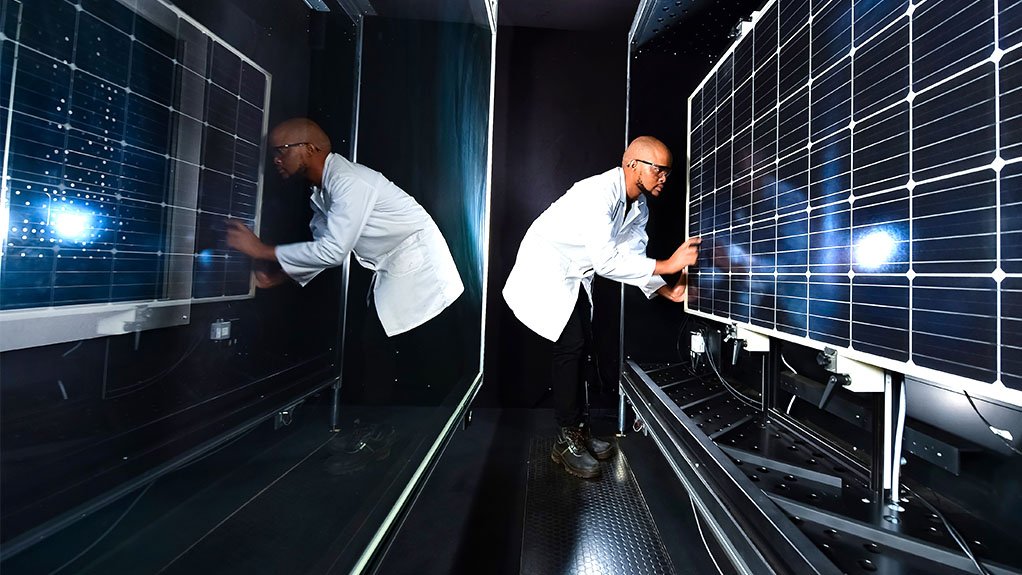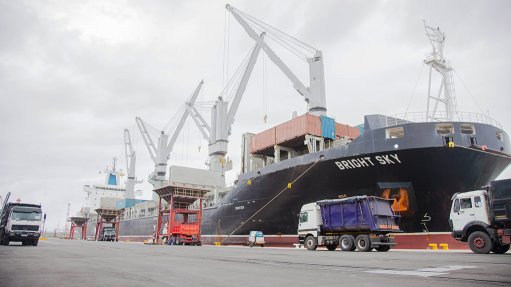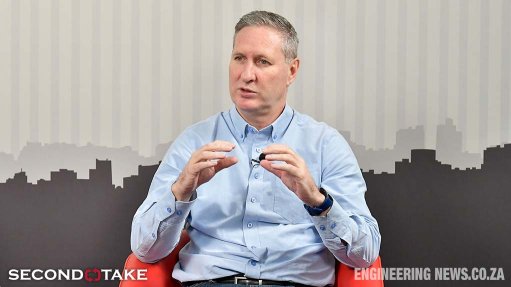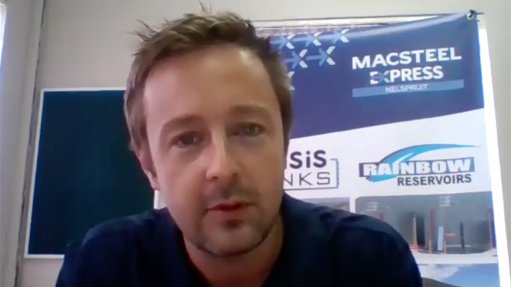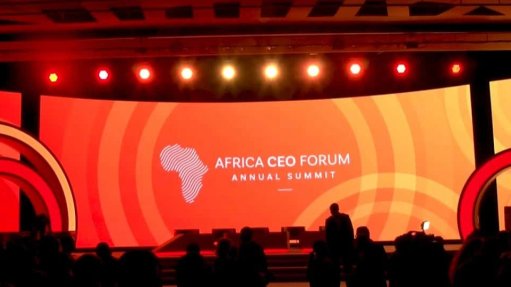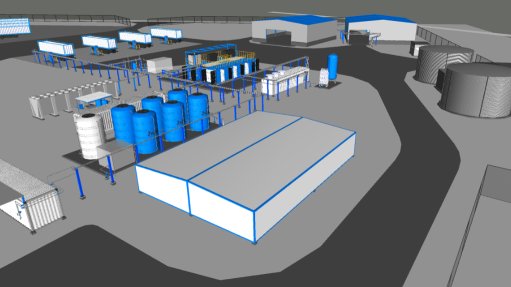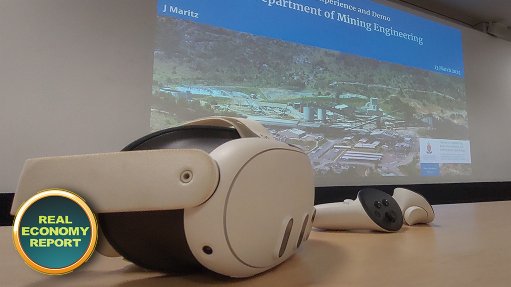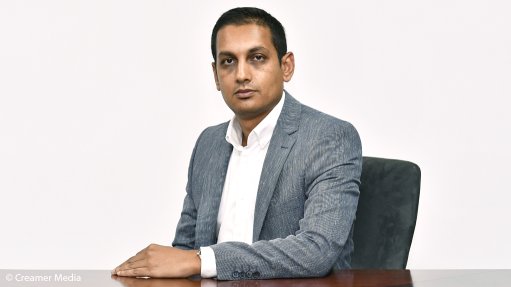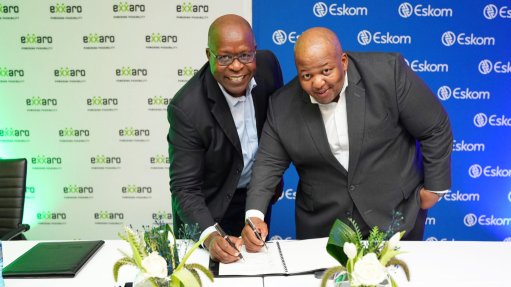CSIR launches Energy Industry Support Programme for small businesses
The Council for Scientific and Industrial Research (CSIR) has launched a five-year Energy Industry Support Programme (EISP), which is being co-funded by the Electricity and Water Sector Education and Training Authority (EWSeta).
The EISP was launched at the Evolving Electricity Landscape – Opportunities For Investments conference hosted at the CSIR’s premises, in Pretoria, on November 17.
The total external funding secured for the next five years is R9.35-million. Other possible future collaborators include the South African Institute of Chartered Accountants’ Enterprise Development arm and the Black Management Forum.
“We are trying to narrow down what research is required for us to have a just energy transition in South Africa and what this means for us to develop and create a capable State and increase our economic growth to help people on the ground whose livelihoods will be affected by it,” said CSIR acting research group leader Aradhna Pandarum, who is spearheading the programme.
The EISP is expected to support small, medium-sized and microenterprises (SMMEs) that want to participate or are already participating in the energy sector, as well as to fill the skills gaps in the labour market for the emerging energy industry.
Pandarum explained that the programme would encourage innovation and help empower innovators, as well as the labour force, with the skills required to contribute to economic development through the energy sector.
The EISP aims to encourage innovation within the industry by providing the technical expertise that can aid the development of technological ambitions of the industry.
In addition, the programme seeks to inspire the use of developed intellectual property through the commercialisation of identified relevant technologies and where there is a demand.
The just energy transition, Pandarum said, could be defined and categorised by the four Ds: decarbonisation, digitalisation, decentralisation and deregulation.
She explained that decarbonisation referred to the need to move away from high-carbon energy systems to a low-carbon economy that runs on low-carbon energy solutions, while digitalisation refers to the onset of Industry 4.0 and how the incorporation of such smart technologies is central to effecting an energy transition.
Decentralisation refers to the move away from a centralised energy baseload that depends on large coal-fired power stations situated in one region of the country, towards a decentralised and nationally distributed electricity generation fleet.
Lastly, deregulation is critical as it refers to the way that overregulation in the energy sector is preventing it from growing at the pace necessary to address South Africa’s energy supply challenges.
“Regulation still needs to be there but having a big body of regulation designed to focus on the big centralised system needs to change. This is necessary to create an enabling environment for decarbonisation, digitalisation, decentralisation to take place,” Pandarum explained.
She noted that the EISP aimed to address the lack of funding and programmes to capacitate SMMEs – even though they contributed to more than 50% of employment in South Africa.
Pandarum noted that, unless countered through programmes such as the EISP, the energy transition would result in companies losing business, especially in Mpumalanga, and that further jobs would be lost, resulting in a subsequent unemployment increase and potential social injustice and unrest.
She said SMMEs were unsure of the opportunities that the new energy landscape would bring about, and that innovators did not have sufficient platforms to air their ideas and obtain funding, owing to the high financial risk.
“We are living in an unjust society. We have the triple challenge of poverty, inequality and unemployment in the country. We have the opportunity during this energy transition to combat that. This energy industry support programme emerged from creating ownership, customer ownership for the energy sector and in the energy landscape,” Pandarum said.
The EISP aims to capacitate SMMEs in the energy sector to empower them with technical information on possible enterprise development in the new energy landscape.
Further, CSIR technical expertise will be provided to technically incubate SMMEs and provide technical mentorship to enhance their businesses. This will also provide a platform for the CSIR to lend its expertise to derisk futuristic and innovative ideas not currently being funded.
Comments
Press Office
Announcements
What's On
Subscribe to improve your user experience...
Option 1 (equivalent of R125 a month):
Receive a weekly copy of Creamer Media's Engineering News & Mining Weekly magazine
(print copy for those in South Africa and e-magazine for those outside of South Africa)
Receive daily email newsletters
Access to full search results
Access archive of magazine back copies
Access to Projects in Progress
Access to ONE Research Report of your choice in PDF format
Option 2 (equivalent of R375 a month):
All benefits from Option 1
PLUS
Access to Creamer Media's Research Channel Africa for ALL Research Reports, in PDF format, on various industrial and mining sectors
including Electricity; Water; Energy Transition; Hydrogen; Roads, Rail and Ports; Coal; Gold; Platinum; Battery Metals; etc.
Already a subscriber?
Forgotten your password?
Receive weekly copy of Creamer Media's Engineering News & Mining Weekly magazine (print copy for those in South Africa and e-magazine for those outside of South Africa)
➕
Recieve daily email newsletters
➕
Access to full search results
➕
Access archive of magazine back copies
➕
Access to Projects in Progress
➕
Access to ONE Research Report of your choice in PDF format
RESEARCH CHANNEL AFRICA
R4500 (equivalent of R375 a month)
SUBSCRIBEAll benefits from Option 1
➕
Access to Creamer Media's Research Channel Africa for ALL Research Reports on various industrial and mining sectors, in PDF format, including on:
Electricity
➕
Water
➕
Energy Transition
➕
Hydrogen
➕
Roads, Rail and Ports
➕
Coal
➕
Gold
➕
Platinum
➕
Battery Metals
➕
etc.
Receive all benefits from Option 1 or Option 2 delivered to numerous people at your company
➕
Multiple User names and Passwords for simultaneous log-ins
➕
Intranet integration access to all in your organisation



